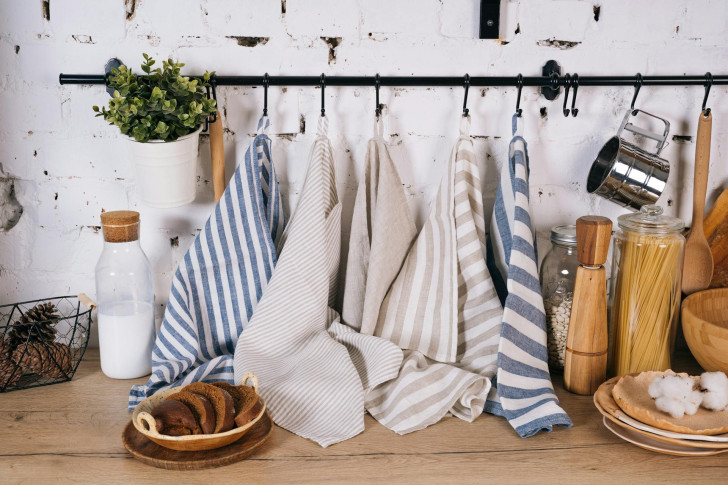How to wash tea towels and tablecloths and keep them clean and fragrant

Tea towels and tablecloths are in constant use and, as a result, end up getting washed frequently. However, we're not always successful in cleaning these items properly and constant washing can fade their colors, turn them "grey-ish" and they may even start to smell sour! So, how can we deal with this problem? Well, there are several methods you can try.
Pre-washing and laundering tea towels and tablecloths

Tima Miroshnichenko/Pexels
Before loading your tea towels and tablecloths into the washing machine, determine the type/s of dirt they have on them and how long it's been there.
If the stains are stubborn and/or old, it is best to do a pre-wash. You can do this by immersing the items into a basin of warm water to which you need to add some white vinegar (use one cup of vinegar for every 5 litres of water). Also add a spoonful of sodium bicarbonate and leave the items to soak for at least a quarter of an hour (but certainly no longer than half an hour).
Thereafter, proceed with washing the items normally. If the items are whites, you can add a little bleach to the wash. For a milder, more eco-friendly alternative, use sodium percarbonate as a bleacher.
Typically, the wash will be done on a high temperature cycle, but this actually depends on the type of fabric: some tablecloths are more delicate and should be washed on "less aggressive" programmes. It is always best to refer to the washing instructions on the labels.
Useful tips for always having fresh, clean tea towels and tablecloths

Arina Krasnikova/Pexels
- Wash these items regularly: tea towels used daily should be washed every 2 or 3 days;
- Never leave these items in the washing machine when the cycle is finished. Trapped humidity will cause unpleasant odors to develop;
- Sometimes, tea towels and tablecloths get impregnated with cooking smells or ambient humidity. Consequently, don't procrastinate washing these items and make sure you ventilate your kitchen properly;
- After washing, immediately hang up these items to dry in the right spot (or put them into the dryer). For whites, you can hang them up in direct sunlight (and which will also help remove any "greying" of the fabrics);
- Between uses, be sure to hang up tea towels on hooks, rails or handles, rather than keeping them crumpled up and laying around damp for ages. Continuously using damp tea towels will spread dirt, germs and bacteria.
- Additionaly, once every month or two, you can also boil your tea towels in water for about ten minutes to kill off any lingering germs and bacteria. As this is an "aggressive" cleaning technique, it's best used on "common" tea towels only.